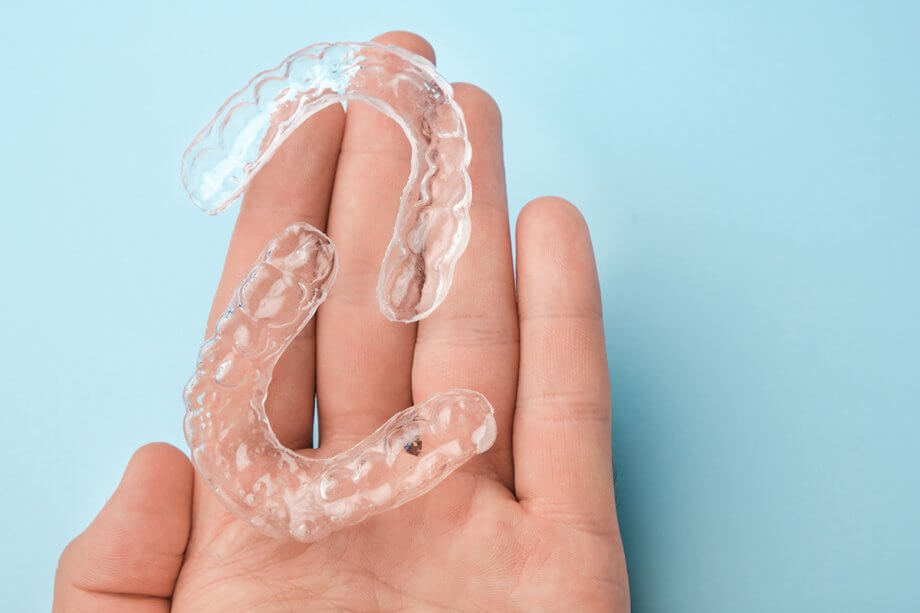Invisalign is an orthodontic treatment designed to straighten teeth and align bite patterns. Using clear plastic aligners worn over the teeth, Invisalign shifts teeth into a more desirable position. Invisalign can achieve the same results as braces in many cases, but can it correct an overbite? Here’s what you need to know.
What is an Overbite?
An overbite occurs when the top row of teeth extend too far beyond your bottom row of teeth when you bite down. This can cause damage to your teeth over time as the force of chewing puts excess strain on the back molars. It can also cause jaw pain and headaches. In cases of severe overbite, the bottom teeth may damage the soft tissue at the roof of your mouth behind your top teeth.
How Invisalign Works
Invisalign treatment includes a series of clear aligners that are essentially invisible on your teeth. The aligners gradually shift your teeth into proper alignment. You wear each aligner for about 2 weeks, then switch to the next one in order until you have worn them all. It is important that you wear your aligners as much as possible each day, only taking them out to eat and clean your teeth.
Are You a Candidate for Invisalign?
Invisalign works best for mild to moderate orthodontic cases. An overbite is common, and is typically treatable with Invisalign, along with other mild bite misalignments. However, in severe cases where bite misalign is caused by malformation of the jaw or facial bones, Invisalign may not be an effective treatment option.
Invisalign Treatment for Overbite
When it comes to correcting an overbite, Invisalign can change the position of the teeth in your jaw. The top teeth can be shifted back and the bottom teeth can be shifted forward to help the teeth meet together properly when you chew. Invisalign may even change the shape of your jaw slightly so that your bite is better aligned.
Why Does an Overbite Need Treatment?
If your top teeth are supposed to be in front of your bottom teeth when you bite down, why is an overbite a problem? The reason an overbite needs to be treated is that if the front teeth extend too far beyond the bottom teeth, the top and bottom rows don’t meet together properly. The back teeth may wear down prematurely and weaken the enamel, putting the teeth at a high risk of cracks or fractures. An overbite also increases your chances of developing TMJ disorder, which is characterized by pain and limited range of motion in your jaw.
Frequently Asked Questions About Invisalign and Overbites
How do I know if my overbite is problematic?
Your dentist can evaluate your bite alignment and determine if you have an overbite that should be treated. If you are experiencing headaches, jaw pain, or soreness in your gums, it may be due to an overbite.
How long does Invisalign take to correct an overbite?
Invisalign treatment can take anywhere from 6-18 months on average. How long your treatment will take depends on the severity of your case and how far your teeth need to be shifted to achieve the desired results.
Schedule a Consultation Today
Are you interested in Invisalign? Kensington Natural Smiles can evaluate the current alignment of your teeth and bite to determine if Invisalign treatment would be effective for you.
Call 301-933-3903 or contact us today to learn more and schedule an appointment.

